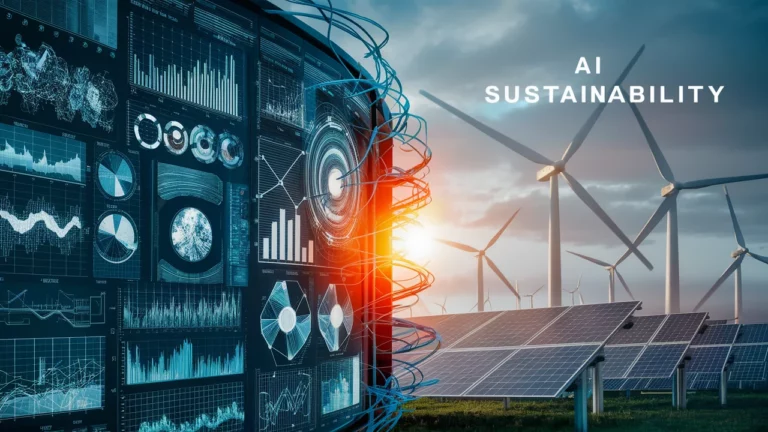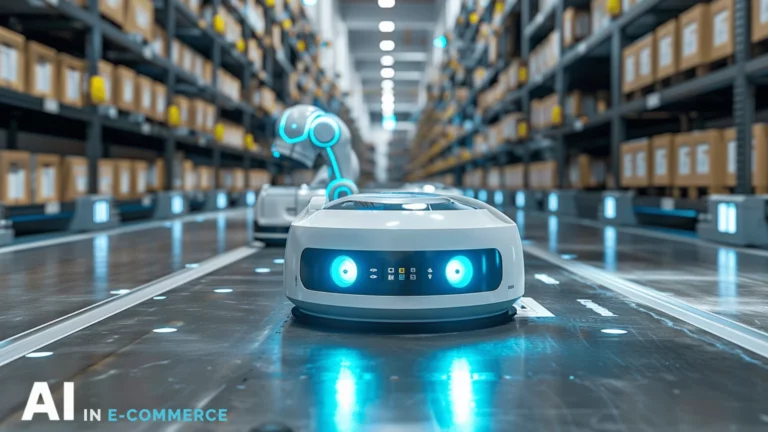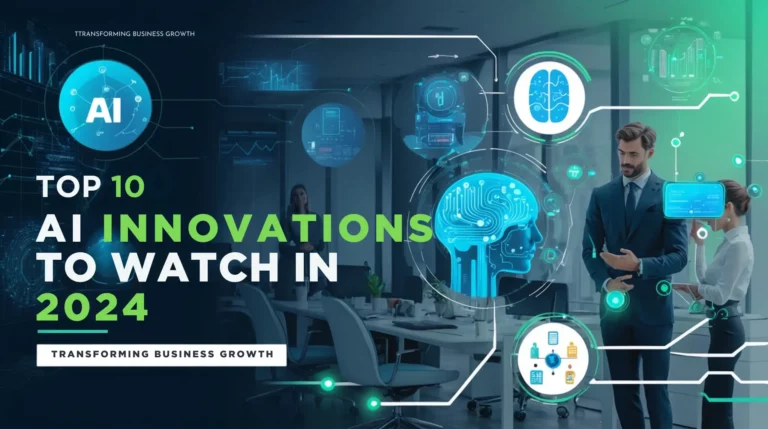Harnessing AI for Sustainability: Project Management Strategies

Artificial intelligence (AI) for sustainability and sustainability have become increasingly crucial in today’s rapidly evolving world. Organizations are beginning to utilize AI to drive sustainable practices and enhance project management strategies, underscoring the intersection of AI with sustainable organizational growth. By harnessing the power of AI, businesses can optimize their operations, reduce their carbon footprint, and contribute to a more sustainable future.
Our audience supports Ahcrypto. When you click on the links on our site, we may earn an affiliate commission at no extra cost to you. Learn More.
Key Takeaways
Utilizing AI for Sustainability

One of AI’s significant roles is in supporting sustainable development goals, illustrating the intersection of AI and global priorities for a sustainable future. By harnessing AI for sustainability, companies can accelerate climate action by leveraging AI tools to analyze and predict climate patterns. Additionally, AI can enable the development of generative AI models that aid in creating sustainable technologies and frameworks for environmental impact assessments, a convergence point for AI advances and sustainability. This integration of AI technologies is paramount in achieving ESG objectives and fostering a sustainable future, aligning with the notion that Harnessing AI for Sustainability can help create a sustainable future.
The Role of AI in Sustainable Development Goals
Harnessing AI for Sustainability algorithms can help organizations address key sustainability challenges by providing valuable insights into energy efficiency and optimizing resource consumption. Businesses can innovate and reduce their environmental impact by applying AI to various use cases, such as enhancing energy consumption in data centers and optimizing supply chain processes. The potential of Harnessing AI for Sustainability in driving sustainability data analysis and improving sustainability goals underscores its importance in shaping a more sustainable future.
AI’s Influence on Project Management
Artificial Intelligence (AI) is reshaping project management practices by offering innovative solutions and streamlining processes, illustrating how the application of AI can transform business operations towards sustainability. Harnessing AI for Sustainability is evident in accelerating project delivery timelines and improving efficiency, showcasing how AI can help streamline sustainability projects. The potential of Harnessing AI for Sustainability is clear in its ability to drive more effective and sustainable project outcomes.
How AI Can Accelerate Project Delivery
By leveraging AI tools, project managers can automate repetitive tasks, identify potential risks, and optimize resource allocation. AI algorithms can analyze vast amounts of data to provide insights that enhance decision-making processes, ultimately speeding up project completion.
The Changing Role of Project Managers in the AI Era
In the era of AI, project managers are evolving into strategic leaders who leverage AI technologies to drive project success. They now focus more on data interpretation, risk mitigation using AI-powered predictive analytics, and leveraging machine learning for project forecasting.
Adopting AI and Robotics in Project Management
Integrating robotics in project management offers significant advantages, such as enhancing productivity, reducing errors, and improving project outcomes. AI-driven project management tools can assist in task scheduling, resource optimization, and real-time project monitoring.
How AI can enable a sustainable future
AI enables sustainability initiatives by providing data-driven insights and innovative solutions. Organizations can use AI to optimize energy consumption, reduce carbon footprint, and implement sustainable practices across project lifecycles.
Accelerating Climate Action with AI

Regarding sustainability, AI is a valuable tool in accelerating climate action efforts. The application of AI in this sector is a testament to its potential in creating a sustainable future. By Harnessing AI for Sustainability, organizations can employ data analysis and predictive capabilities to gain insights into climate patterns. This enables proactive measures to mitigate the impact of climate change and adapt to environmental challenges. Furthermore, generative AI models are instrumental in fostering the development of sustainable technologies and facilitating ecological impact assessments, an application of AI that exemplifies its role in environmental stewardship. Integrating AI into climate action strategies by Harnessing AI for Sustainability is vital for achieving Environmental, Social, and Governance (ESG) objectives and advancing towards a greener and more sustainable future.
Managing the Environmental Impact of AI
As AI adoption grows, managing its environmental impact becomes increasingly pertinent. Harnessing AI for Sustainability, AI algorithms can aid in addressing sustainability challenges by optimizing energy efficiency and resource consumption, a precise instance of how AI can also help in sustainable resource management. Organizations are employing AI to enhance energy usage in data centers and streamline supply chain operations, thus reducing their carbon footprint. By utilizing AI for sustainability data analysis and setting and achieving environmental goals, companies can effectively manage the environmental impact of their AI initiatives. The approach of Harnessing AI for Sustainability ensures that AI technologies contribute positively to environmental stewardship.
How AWS is Using Lower-Carbon Materials to Build Data Centers
In a concerted effort to reduce carbon emissions and enhance sustainability, tech giants like Amazon Web Services (AWS) are incorporating lower-carbon materials in constructing data centers. By Harnessing AI for Sustainability and using sustainable building materials and energy-efficient technologies, AWS aims to minimize the environmental footprint of its data infrastructure. This strategic approach aligns with broader sustainability goals and showcases tangible actions that tech companies can take to mitigate the environmental impact of their operations. Harnessing AI for Sustainability by adopting lower-carbon materials in data center construction reflects a proactive stance toward ecological stewardship and underlines the pivotal role of innovative solutions in fostering a sustainable future.
Conclusion
The use of AI in enhancing sustainability efforts is gaining prominence, especially as AI advances continue to unfold. Harnessing AI for Sustainability is evidenced by its application in various fields, including energy conservation, supply chain optimization, and environmental monitoring. The emphasis on long-term sustainability strategies that involve AI is also notable, indicating how Harnessing AI for Sustainability has the potential to shape sustainable futures. Moreover, the potential and capabilities of AI are increasingly being recognized as crucial elements in accelerating the attainment of sustainability goals.
Keep updated on all of our latest tips here.
FAQ

Scott Evans
Hey there, I’m Scott Evans, your friendly guide at AhCrypto! I’m all about breaking down complex SaaS, AI, and tech topics into digestible insights. With me, you’re not just keeping up with the tech world; you’re staying ahead of the curve. Ready to dive into this exciting journey? Let’s get started!






